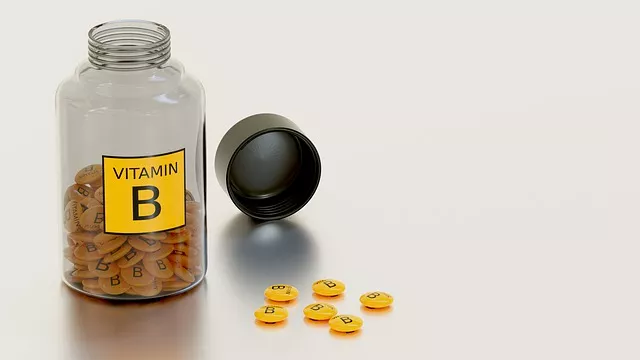The importance of Vitamin B12

Vitamin B12, also known as cobalamin, is an important water-soluble vitamin. Vitamin B12 is essential for the body to work properly, it is required for the function and development of the brain, nerves, blood cells, and many other parts of the body and helps make DNA, the genetic material in all of the cells in the body. Vitamin B12 also helps prevent megaloblastic anemia, a blood condition that makes people tired and weak due to formation of abnormally large red blood cells that do not carry oxygen for the cells throughout the body. Long term vitamin B12 deficiency can lead to neurological damage and permanent brain damage.
Vitamin B12 is synthesized by only certain bacteria and archaeon, but not by plants or animals. Synthesized Vitamin B12 is transferred and accumulated in animal tissues, so it is found in animal foods naturally, but plant foods have no vitamin B12 unless they are fortified.
People who follow a vegan diet, adults older than 50 and anyone with digestive problems that impairs absorption of nutrients are at higher risk. Older people do not produce enough of the stomach enzymes that are required to effectively absorb nutrients.
The body absorbs vitamin B12 from food in a two-step process. First, Hydrocholric acid in the stomach separates vitamin B12 from the protein that it’s attached to. Second, the freed vitamin B12 then combines with a protein made by the stomach, called intrinsic factor, and the body absorbs them together.
Dr. Micheal Gregar says in his book How Not To Die, a regular, reliable source of vitamin B12 is critical for anyone eating a plant based diet because cases reported of paralysis, psychosis, blindness, and even death as the result of vitamin B12 deficiency.
The required amount of Vitamin B12 per day varies with the age. Average daily recommended amounts for different ages are listed below in micrograms (mcg): source National Institute of Health, Office of Dietary Supplements (USA)
| Life stage | Recommended amount |
| Birth to 6 months | 0.4 mcg |
| Infants 7–12 months | 0.5 mcg |
| Children 1–3 years | 0.9 mcg |
| Children 4–8 years | 1.2 mcg |
| Children 9–13 years | 1.8 mcg |
| Teens 14–18 years | 2.4 mcg |
| Adults | 2.4 mcg |
| Pregnant teens and women | 2.6 mcg |
| Breastfeeding teens and women | 2.8 mcg |
The National Academy of Medicine, USA recommends that adults over the age of 50 should meet most of their vitamin B12 needs through supplements and fortified foods, to find out if a food has added vitamin B12, check the Nutrition fact label, manufacturers are not required to list vitamin B12 on the label if a food naturally contains this vitamin. but we would have to eat three servings a day of foods each providing at least 190 percent of the Daily Value Dr. Gregar says.
Some foods that are rich in Vitamin B12 are fish, meat,poultry, eggs,milk, and other dairy products, clams,beef liver, some breakfast cereals, nutritional yeast and food fortified with Vitamin B12 .
Vitamin B 12 supplements are in a form called cyanocobalamin.Other common forms are adenosylcobalamin, methylcobalamin, and hydroxycobalamin.
Human body can store 1,000 to 2,000 times as much vitamin B12 as a person would typically eat in a day, so the symptoms of vitamin B12 deficiency can take several years to appear. The symptoms of vitamin B 12 deficiency include, feel tired and weak due to megaloblastic anemia, have pale skin, heart palpitations, loss of appetite, weight loss, infertility, numbness or tingly feeling in hands & feets, depression, confusion, dementia, poor memory and soreness of mouth & tongue.
Vitamin B12 is a nutrient that plays many essential roles in the body. The Recommended Daily Intake for vitamin B12 ranges from 2.4 mcg for adults to 2.8 mcg for breastfeeding women. Most people meet these needs through diet alone, but older adults, vegetarians and vegans, and those with digestive disorders may benefit from supplements.
Author - Yashodha Jayalath
MSc in Food Science & Technology, PGIA University of Peradeniya, Sri Lanka.
BSc in Health Promotion, Rajarata University of Sri Lanka.
Pg Dip in Psychological Counselling & Psychotherapy, Institute of Psychological Studies Sri Lanka.
Associate Member of Sri Lanka National Institute of Professional Counsellors, Registration number 2015/1526